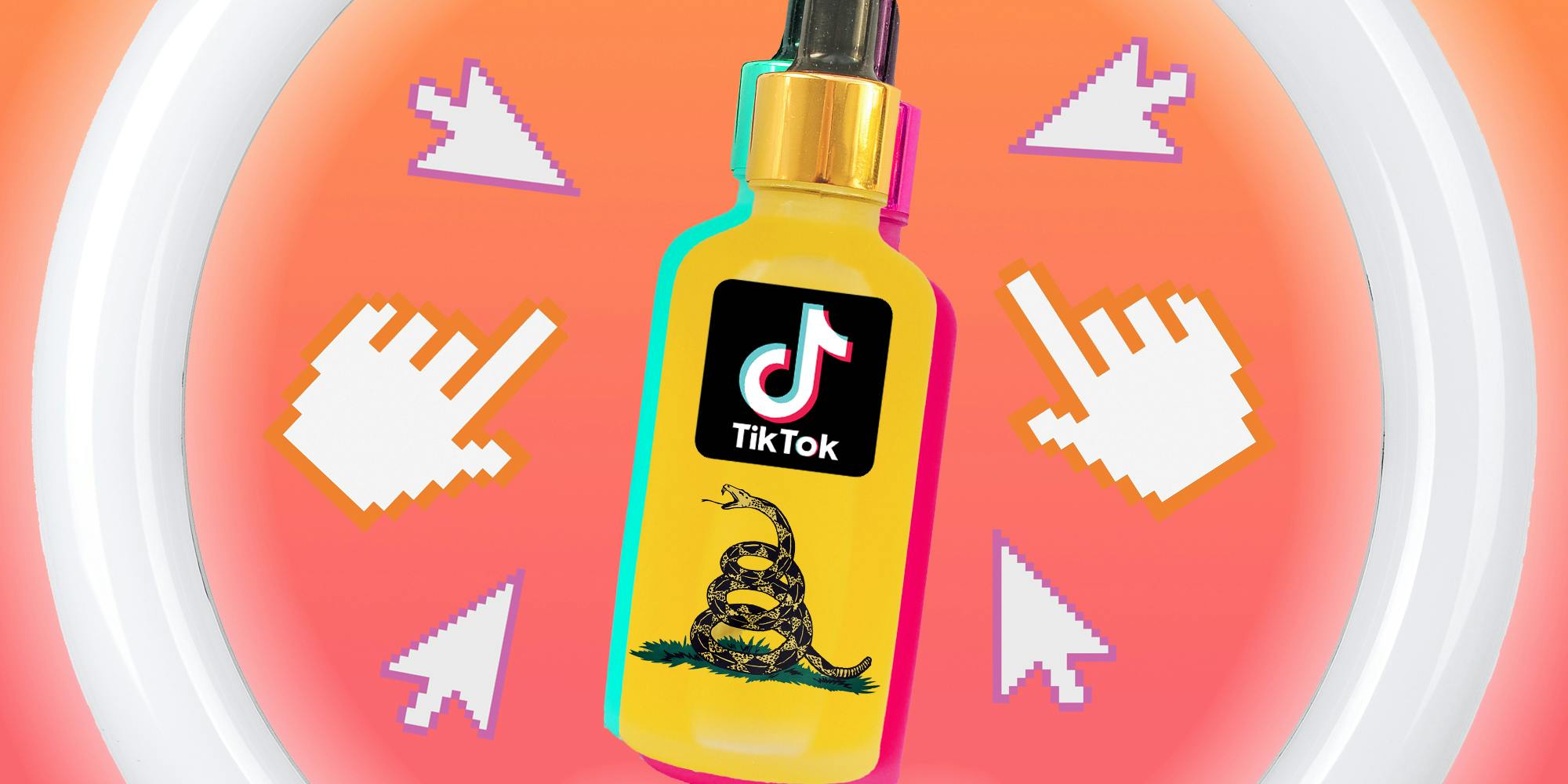
Last week, A.W. Ohlheiser, a senior technology reporter at Vox wrote a scathing article about how TikTok creators profit off dangerous health trends. The story focused largely on TikTok creator Busy Belle who, according to Ohlheiser, has been telling her nearly 30,000 followers that castor oil — a vegetable oil pressed from beans — if applied to the belly button, can fight bacterial infections and even dissolve tumors.
As a result of Belle’s content, castor oil has emerged as the latest viral product that’s being sold on TikTok’s in-app marketplace better known as TikTok Shop. “The Shop also provides a revenue stream for creators, who can make ‘affiliate’ videos promoting products found in the shop,” writes Ohlheiser. But rather than standard “paid sponsorship” posts, affiliates who promote these products make a commission from sales.
The issue with Belle’s promotion of castor oil is twofold. First, there’s little to no evidence that any of its health benefits are real. Second, according to Ohlheiser, “researchers found that videos promoting these substances, at times appearing to target teenagers, were viewed more than 500 million times on TikTok, mostly by people younger than 24.”
Of course, we’ve known for a while that social media algorithms feed people content to increase “engagement” and keep them scrolling to see more ads. Not to mention that emotionally provocative claims like “castor oil could help dissolve tumors” or “rubbing castor oil in your belly button helps speed up your metabolism” go a long way in cultivating viral content. Certainly more than a nuanced approach like one study that suggested that castor oil, used at the cellular level, might “inhibit aggressiveness of the cancer cells by inhibiting characters of metastasis such as cell motility, adhesion, and invasion.”
So what’s the solution?
According to Ohlheiser, TikTok should be more aggressive with the way it enforces its policies. Her theory is that if the company was more vigilant it could more effectively enforce its policy that creators can’t sell “unlicensed medicines, herbal or homeopathic products, and those making health claims,” not verified by the United States Food and Drug Administration.
Her point is a fair one. More and more users across all social platforms are saying they are fed up with the lack of content moderation of misinformation online. But getting tech companies to enforce moderation policies has largely been a futile endeavor. As Ryan Broderick points out in his Substack this week, these companies “were only ever going to clean up their platforms to a point.”
“Musk recently shut down an internal misinformation tool called Smyte and liquidated X’s election integrity team,” Broderick continues. “Meta’s Threads doesn’t even have one. And YouTube and Meta have largely given up on moderating conspiracy theories.” In other words, suggesting TikTok needs to do a better job of enforcing its policies is a bit like expecting the financial system in this country to self-regulate.
It also seems wrong to single out a creator with 30,000 followers as the face of this fake medical treatment industrial complex. Like so many creators, Belle is merely exploiting the platform’s algorithm to earn a living. A more compelling question worth exploring is how we got to a place where so many creators are successfully promoting fake viral health trends that are accepted as gospel by so many young people?
We’ve been driving down this road for years. According to the 2019 American Community Survey (ACS), adults ages 19 to 34 had the highest uninsured rates of any age group in the United States. As of this year, according to the Centers for Medicare & Medicaid Services, about 30% of young adults are uninsured, representing more than one in five of the uninsured.
In addition, there’s plenty of research that has shown that young adults are the lowest responders to surveys about healthcare experiences and are also the least satisfied with the care they receive. Not to mention young people’s trust in institutions, including medical ones, has cratered in recent years.
In short, young Americans have all but been pushed to seek medical advice in places that are taking advantage of their situation. So, sure Busy Belle and the like should reconsider promoting snake oil to young people. But also, the appeal of snake oil and snake oil content is only going to proliferate if people either don’t get the care they need or fail to trust the institutions giving it to them.
Do you have a clue about our next big story? Email tips@passionfru.it to share your information.




